End-of-life care focuses on providing compassionate support to individuals nearing death‚ addressing their emotional‚ physical‚ and psychological needs. It emphasizes dignity‚ comfort‚ and personalized care‚ guided by cultural and personal beliefs‚ helping loved ones find meaning and comfort in their final journey.
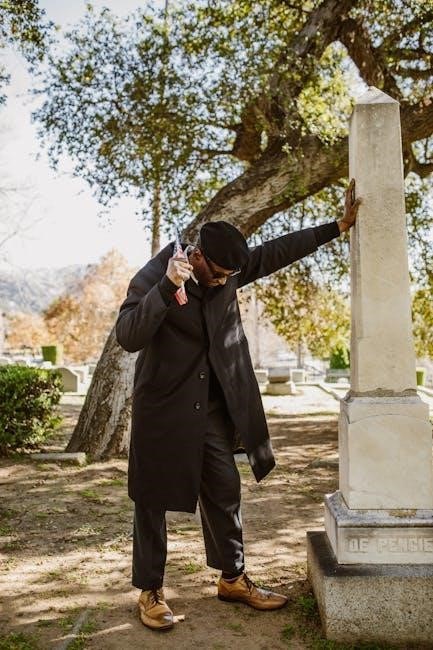
Understanding the Importance
End-of-life care holds profound significance as it addresses the emotional‚ psychological‚ and physical needs of individuals nearing death. It ensures dignity and comfort‚ allowing people to live their final days meaningfully. Cultural and personal beliefs guide care decisions‚ emphasizing compassion and respect. Families and caregivers benefit from understanding the importance of open communication and empathy‚ which fosters a supportive environment. Recognizing the emotional toll on loved ones‚ end-of-life care also provides resources to help them cope with grief and loss. The role of humor in death‚ though often overlooked‚ can bring comfort and lightness to difficult moments. By prioritizing the well-being of both the dying and their loved ones‚ end-of-life care creates a foundation for healing and closure‚ even after death.
Emotional and Psychological Impact
Loss profoundly affects individuals and families‚ causing emotional turmoil and psychological distress. Grief varies widely among adults and children‚ requiring tailored support. Understanding these impacts is crucial for fostering healing and providing comfort.
Impact on Adults
The emotional and psychological impact of death on adults can be profound‚ often leading to grief‚ anxiety‚ and depression. Adults may experience emotional turmoil‚ struggling to cope with the loss of a loved one. This can manifest as difficulty sleeping‚ changes in appetite‚ or feelings of emptiness. Relationships may strain as individuals process grief differently‚ leading to misunderstandings or isolation. Many adults also grapple with existential questions about life’s meaning and their own mortality. Support systems‚ such as therapy or support groups‚ play a crucial role in helping adults navigate these challenges. It’s important to recognize that everyone grieves differently‚ and there is no set timeline for healing. Encouraging open communication and providing emotional support can help adults find balance and move forward‚ even as they carry the memory of their loved one with them. Professional help is often essential for those overwhelmed by their emotions.
Supporting Grieving Children
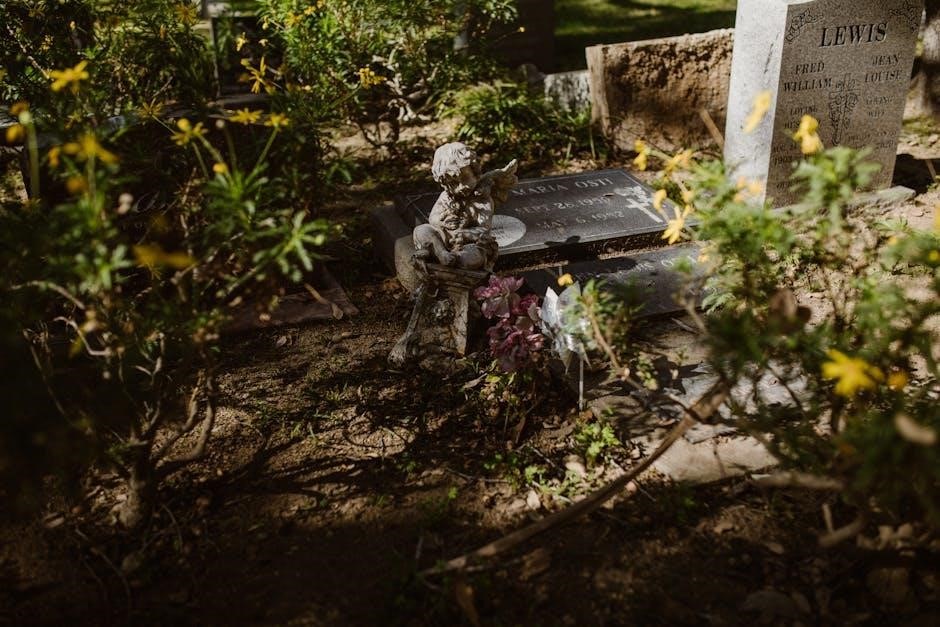
Supporting grieving children requires sensitivity and understanding‚ as they often struggle to comprehend death. It’s essential to validate their feelings and provide a sense of security. Children may express grief differently‚ such as through play or silence‚ and their understanding of death varies by age. Honest‚ age-appropriate communication is crucial‚ avoiding euphemisms that might confuse them. Encourage them to ask questions and express emotions‚ reassuring them it’s okay to feel sad or angry. Maintaining routines can provide stability. Listening to their needs and offering comfort helps them process loss. Be patient‚ as children grieve in doses‚ revisiting their feelings over time. Professional support‚ like counseling‚ may be needed if they show signs of prolonged distress. Ultimately‚ helping children navigate grief fosters resilience and healthy emotional development‚ guiding them to heal while remembering their loved one. Your presence and support are vital in their journey toward understanding and acceptance.
Death and Bereavement
Death and bereavement profoundly affect individuals emotionally and psychologically‚ necessitating a supportive environment to navigate grief and find solace‚ influenced by cultural beliefs and personal experiences.
Cultural Perspectives on Death
Cultural perspectives on death vary widely‚ influencing how individuals and communities cope with loss. Some cultures view death as a transition to an afterlife‚ while others see it as the end of existence. Rituals and mourning practices differ significantly‚ reflecting societal values and beliefs. For example‚ certain traditions emphasize elaborate funeral ceremonies to honor the deceased‚ while others prefer simpler‚ private gatherings. These cultural differences shape how grief is expressed and processed‚ with some encouraging open emotional displays and others promoting stoicism. Understanding these perspectives is crucial for providing compassionate support to those experiencing bereavement. By respecting cultural traditions‚ we can help individuals navigate their unique journey of healing and remembrance‚ fostering a sense of comfort and connection during difficult times.
The Role of Humor in Death
Humor plays a unique role in navigating death‚ serving as a coping mechanism to lighten the emotional burden. It can help individuals find comfort and maintain connections with loved ones‚ even in difficult moments. While humor must be approached sensitively‚ it can humanize the experience of death‚ making it less intimidating. Many cultures and individuals use humor to celebrate a person’s life‚ sharing funny memories or anecdotes during funerals or memorials. This approach fosters a sense of normalcy and helps grieving individuals process their emotions. However‚ it’s important to balance humor with respect‚ ensuring it aligns with the preferences of the bereaved. Ultimately‚ humor can be a powerful tool in healing‚ offering solace and reminding us of the vibrant lives we’ve lost.
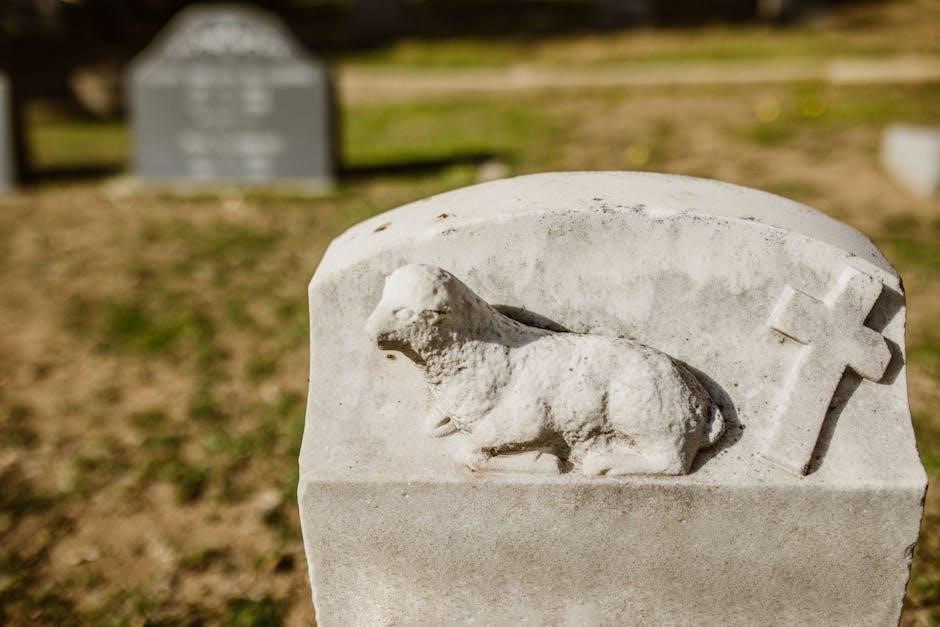
End-of-Life Decisions
End-of-life decisions involve complex choices about medical treatment‚ comfort‚ and dignity‚ requiring careful consideration of legal‚ ethical‚ and personal factors to honor the individual’s wishes and ensure compassionate care.
Challenges in Decision-Making
End-of-life decision-making is fraught with emotional‚ ethical‚ and legal complexities. Families often struggle with balancing medical options‚ personal beliefs‚ and the dying person’s wishes. Emotional strain can cloud judgment‚ while time constraints may limit opportunities for thorough discussion. Additionally‚ cultural differences in viewing death and varying interpretations of dignity can create conflicts. Legal frameworks‚ such as advance directives and proxy decision-making‚ aim to guide these choices but can still lead to disputes. Communication gaps between healthcare providers and families further complicate the process. Ultimately‚ making end-of-life decisions requires empathy‚ clarity‚ and a deep understanding of the individual’s values and preferences to ensure their autonomy is respected.
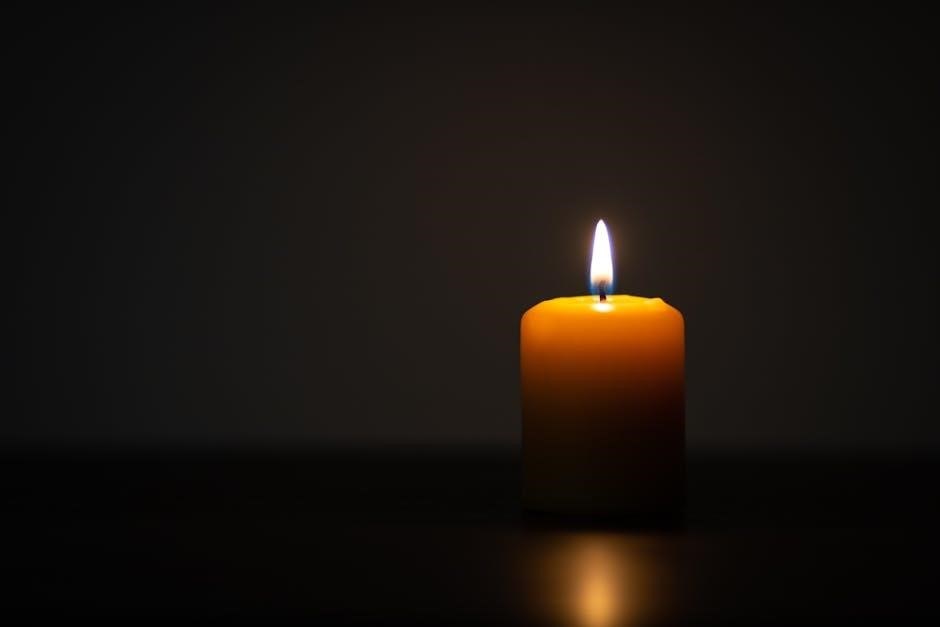
The Debate Around Euthanasia
Euthanasia‚ the practice of intentionally ending a life to relieve suffering‚ sparks intense ethical‚ legal‚ and moral debates. Advocates argue it grants terminally ill individuals autonomy over their death‚ preventing prolonged pain and maintaining dignity. Opponents‚ however‚ fear it devalues life and could lead to abuse‚ particularly for vulnerable populations. Right-to-die activists push for broader access‚ including for young people with mental illness‚ raising concerns about suicide contagion and societal implications. Legal frameworks vary widely‚ with some countries permitting euthanasia under strict conditions‚ while others ban it outright. The debate hinges on balancing individual rights with protective safeguards‚ ensuring decisions are voluntary and informed. It remains a deeply divisive issue‚ reflecting societal values on life‚ death‚ and compassion.
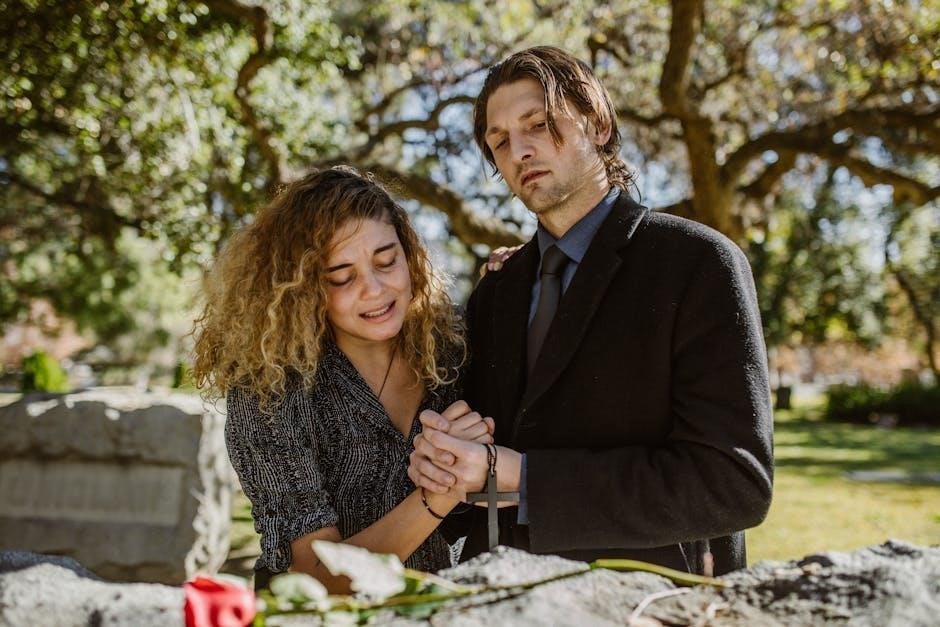
Funeral Planning and Rituals
Funeral planning involves organizing ceremonies that honor the deceased‚ reflecting cultural and personal beliefs. Rituals provide closure‚ helping mourners process grief and celebrate life‚ while modern trends offer personalized expressions of farewell.
What to Expect at a Funeral
A funeral is a structured ceremony honoring the deceased‚ typically including a eulogy‚ readings‚ and music. Mourners gather to pay respects‚ share memories‚ and find comfort. The service may include a procession‚ pallbearers carrying the casket‚ and a committal ritual. Emotional support is crucial‚ as attendees navigate grief. The atmosphere varies‚ reflecting cultural or personal preferences‚ with some incorporating humor or joyous celebrations of life. Funeral directors often guide the process‚ ensuring traditions are respected. Afterward‚ a dismissal signal‚ like a bell or prayer‚ concludes the service. This collective experience helps individuals begin their healing journey‚ offering a space for shared sorrow and farewell. Funerals also provide an opportunity for community support‚ reinforcing connections during difficult times.
The Significance of Funeral Rituals
Funeral rituals hold profound emotional and cultural significance‚ serving as a bridge between life and death. They provide a structured way to honor the deceased‚ offering comfort and closure to mourners. Rituals often include symbolic acts‚ such as lighting candles or releasing flowers‚ which carry deep meaning and help process grief. These practices also uphold cultural traditions‚ reinforcing community bonds and shared values. By creating a collective experience‚ rituals allow individuals to express their emotions and find solace in unity. They acknowledge the finality of death while celebrating the person’s life‚ creating a lasting memory. Funeral rituals thus play a vital role in the healing process‚ offering a pathway to acceptance and peace amidst sorrow. They are a testament to the enduring impact of love and legacy‚ transcending the moment of loss.
Modern Trends in Funeral Services
Modern funeral services have evolved to reflect changing societal values and technological advancements. Many now opt for eco-friendly options‚ such as biodegradable caskets or cremation‚ to reduce environmental impact. Personalization has also become key‚ with themed funerals and customized ceremonies that celebrate the individual’s life. Live-streaming funerals has gained popularity‚ allowing distant loved ones to participate virtually. Additionally‚ there is a growing emphasis on pre-planning services‚ enabling individuals to design their own funerals in advance. Some families are turning to alternative memorialization methods‚ such as scattering ashes in meaningful locations or creating memorial reefs. These trends highlight a shift toward honoring the deceased in ways that are both meaningful and innovative‚ blending tradition with contemporary practices to meet diverse needs and preferences.
The journey of healing after loss involves finding closure and embracing memories. Support from loved ones and communities plays a vital role in navigating grief‚ helping individuals move forward with grace and resilience.
Finding Closure and Healing
Finding closure and healing after a loss is a deeply personal journey‚ often marked by emotional challenges and gradual acceptance. It involves acknowledging grief while fostering resilience and creating meaningful ways to honor loved ones. Support from family‚ friends‚ and professionals can provide comfort and guidance. Engaging in rituals‚ reflecting on memories‚ and seeking therapy can aid in processing emotions. Healing is not about forgetting but about integrating loss into life while finding ways to move forward with renewed purpose and strength.
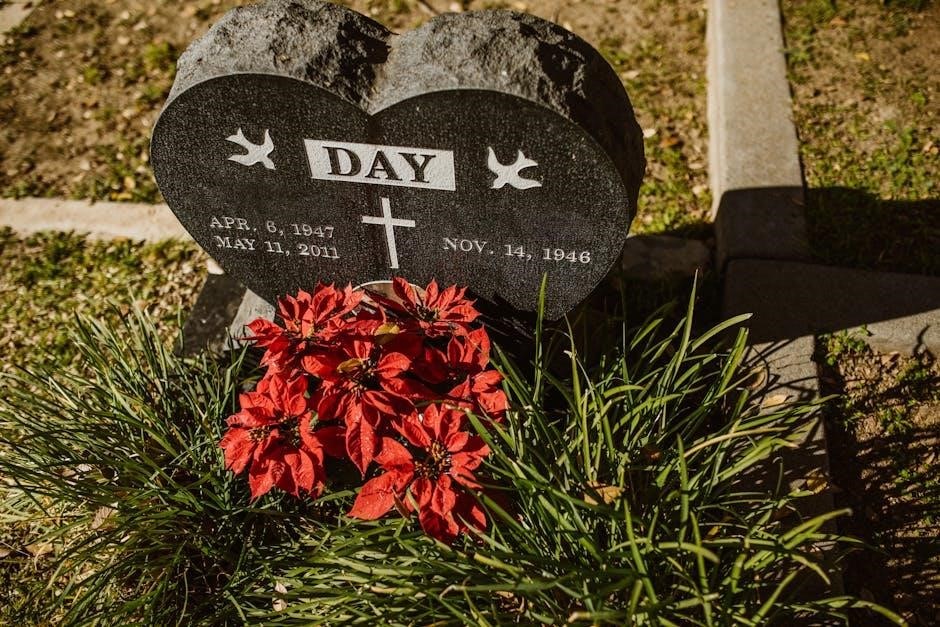
Leave a Reply